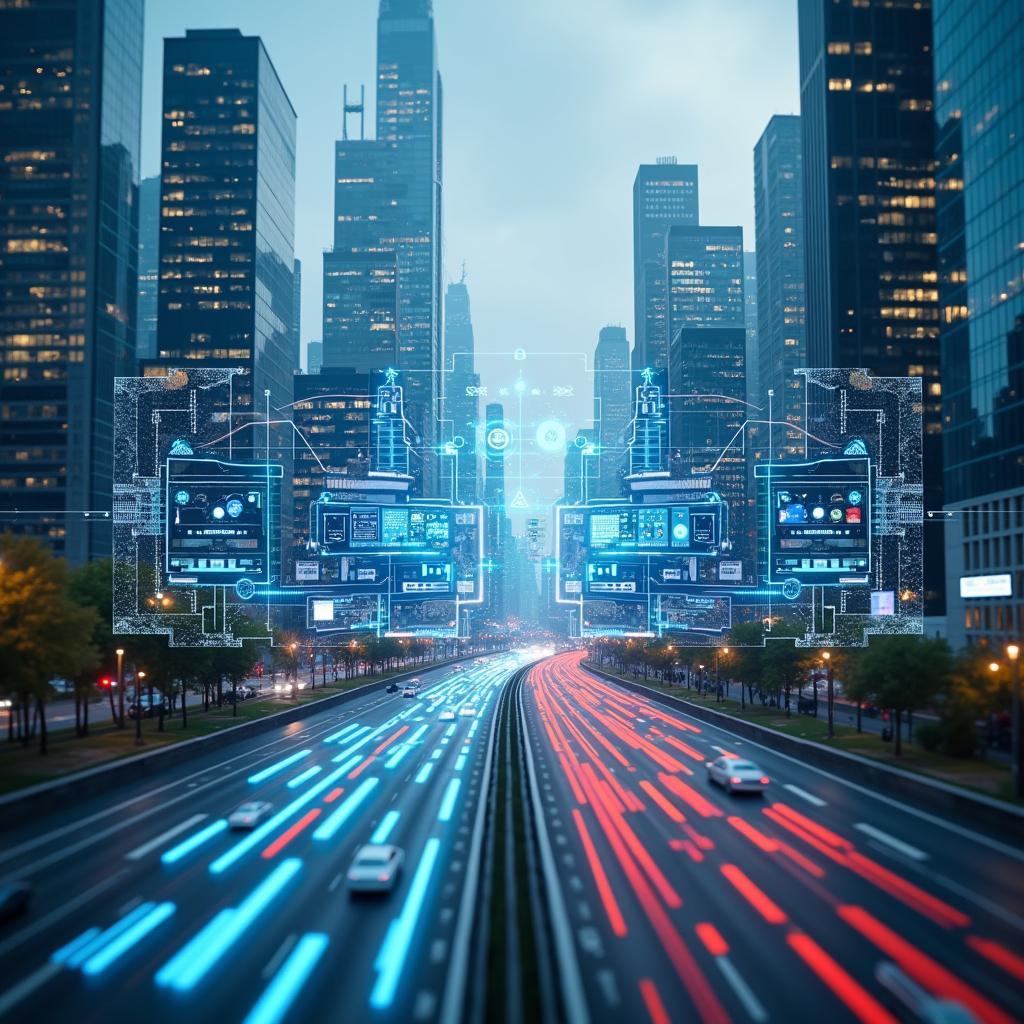The topic of artificial intelligence’s impact on urban development and planning has become increasingly prevalent in IELTS Writing Task 2. Based on analysis of recent exam trends and The role of technology in urban development, this theme appears in approximately 15% of questions related to technology and urban development. Let’s examine a recent task and provide model answers across different band scores.

Task Analysis
Some people believe that artificial intelligence (AI) will revolutionize urban planning and create better cities. Others argue that human expertise is irreplaceable in urban development. Discuss both views and give your opinion.
This question requires:
- Discussion of both perspectives
- Personal opinion
- Examples and supporting evidence
- Clear structure and coherent arguments
Band 8.5 Model Answer
Similar to The benefits of sustainable waste management, the integration of AI in urban planning presents both opportunities and challenges. While artificial intelligence offers unprecedented capabilities in city development, the human element remains crucial for successful urban planning.
AI’s potential to revolutionize urban planning is substantial. Advanced algorithms can process vast amounts of data to optimize traffic flow, energy consumption, and resource allocation with remarkable precision. For instance, Singapore’s Smart Nation initiative employs AI to analyze transportation patterns, resulting in more efficient public transit systems and reduced congestion. Moreover, AI-powered simulations can predict environmental impacts and population growth patterns, enabling cities to develop more sustainable infrastructure plans.
However, human expertise in urban planning cannot be dismissed. Urban development requires understanding complex social dynamics, cultural preferences, and community needs that AI may not fully comprehend. Professional urban planners bring invaluable emotional intelligence and cultural sensitivity to decision-making processes. For example, the successful rejuvenation of Barcelona’s public spaces relied heavily on human planners’ understanding of local communities’ social needs and historical context.
In my view, the optimal approach lies in combining AI capabilities with human expertise. While AI can provide data-driven insights and efficiency improvements, human planners should guide final decisions and ensure developments align with community values and social requirements. This synergy can lead to cities that are both technologically advanced and socially harmonious.
Band 6.5 Model Answer
This topic relates to The effects of urbanization on social equality as it affects how cities develop. AI and human expertise both have important roles in urban planning.
AI can help make better cities. It can analyze big data about traffic, weather, and population to help plan cities. For example, many modern cities use AI to control traffic lights and reduce traffic jams. AI can also help predict where new houses and roads should be built based on population growth.
On the other hand, human planners are very important. They understand what people need and want in their cities. Humans can think about culture and community feelings, which computers cannot do well. For instance, when planning new neighborhoods, humans know about local traditions and lifestyle preferences.
I think both AI and humans are needed for good urban planning. AI is good for calculations and predictions, but humans must make the final decisions. Cities need both technical skills and human understanding to be successful.
Analysis of Band Scores
Band 8.5 Essay Features:
- Sophisticated vocabulary and complex structures
- Clear progression of ideas
- Well-developed arguments with specific examples
- Effective use of cohesive devices
- Balanced discussion with clear personal stance
Band 6.5 Essay Features:
- Basic but clear arguments
- Simple but accurate language
- Limited range of complex structures
- Basic examples provided
- Some cohesion between paragraphs
Key Vocabulary
- Urban planning (n) /ˈɜːbən ˈplænɪŋ/ – the process of designing and organizing cities
- Artificial intelligence (n) /ˌɑːtɪˈfɪʃəl ɪnˈtelɪdʒəns/ – computer systems capable of performing tasks requiring human intelligence
- Infrastructure (n) /ˈɪnfrəˌstrʌktʃə/ – basic physical systems of a country or city
- Optimization (n) /ˌɒptɪmaɪˈzeɪʃən/ – making something as effective as possible
- Rejuvenation (n) /rɪˌdʒuːvəˈneɪʃən/ – the process of making something young or new again
Consider practicing with similar topics like The challenges of reducing air pollution in urban environments. Share your practice essays in the comments for feedback and improvement suggestions.